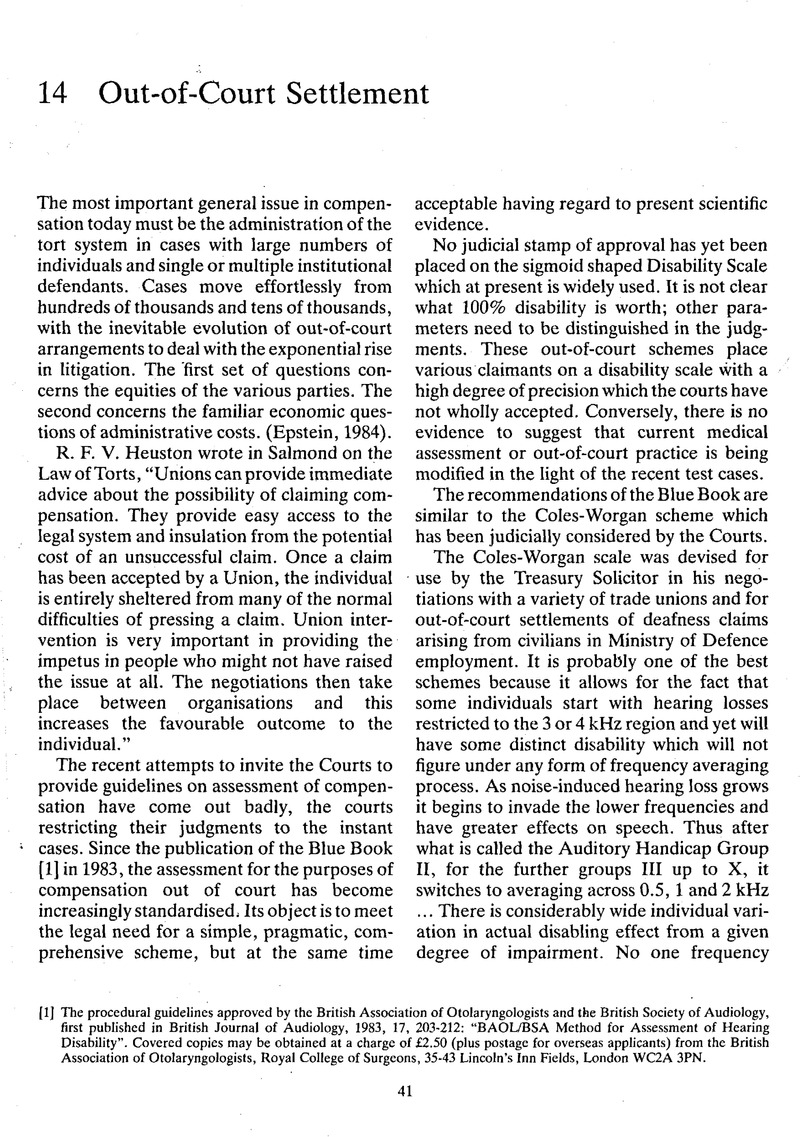No CrossRef data available.
Article contents
14 Out-of-Court Settlement
Published online by Cambridge University Press: 09 November 2023
Abstract

- Type
- Other
- Information
- The Journal of Laryngology & Otology , Volume 100 , Issue S11: Forensic Audiology , 1986 , pp. 41 - 43
- Copyright
- Copyright © JLO (1984) Limited 1986
References
[1] The procedural guidelines approved by the British Association of Otolaryngologists and the British Society of Audiology, first published in British Journal of Audiology, 1983, 17, 203-212: “BAOL/BSA Method for Assessment of Hearing Disability”. Covered copies may be obtained at a charge of £2.50 (plus postage for overseas applicants) from the British Association of Otolaryngologists, Royal College of Surgeons, 35-43 Lincoln's Inn Fields, London WC2A 3PN.
[2] Not an approach which will travel very far in the present political climate. However, the high levels of compensation in the GMBATU out-of-court settlement scheme in comparison with those awarded in the Mustill judgment were negotiated after the case was decided. This shows that there is broad agreement between management and the Unions. The 1984 agreement has worked satisfactorily and has been up-dated in 1986 with some modifications. Individuals remain free to pursue claims in court. Employers do not concede negligence after 1978 because they claim hearing protection was being provided in the industries covered by the settlement scheme from 1978. The maximum compensation under the 1986 scheme is £9,600.
[3] The citation of cases not reported in the “Official” Law Reports received short shrift in the House of Lords in Roberts Petroleum Ltd v Bernard Kenny Ltd [1983] 1 All ER 564. Lord Diplock laid down a restricted procedure, the medical analogy of which would be preventing the citation of “unpublished papers” and those “accepted” but not yet published. No occupational hearing loss case has yet reached the House of Lords.
[4] Out of court, Profs Hinchcliffe and Coles often take on the role of the devil's advocate in true scientific spirit. There are fewer differences in opinion between them than their opposing roles in court would imply. Legal representatives can legitimately highlight scientific evidence selectively.




